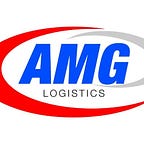Cross Docking
Cross Docking
Cross-docking is the practice of loading products directly onto outbound vehicles after they have been delivered by inbound vehicles. Cross-docking can streamline supply chains and assist them in bringing products to market more quickly and cost-effectively by reducing or eliminating the need for warehouse storage, space requirements, and inventory handling.
Since it eliminates intermediary storage activities, cross-docking has grown in popularity among shippers and third-party logistics (3PL) providers. This is because it lowers inventory costs and speeds up delivery times.
Continuous real-time visibility of shipments from the supplier to the end customer is necessary for effective cross-docking. Regrettably, many enterprise resource planning (ERP) systems do not offer fine-grained information particular to cross-docking transactions.
It is crucial to track individual packages. Low visibility increases the likelihood of duplicate or delayed shipments, too much inventory, and additional processing costs due to rogue shipments. To manage product flow and resolve issues quickly, businesses must be aware of the status of cross-docked products.
KEEP YOUR PRIORITIES STRAIGHT
A solution that takes these requirements into account is required for operations aiming for best-in-class cross-docking performance:
Visibility: Customers, suppliers, and 3PLs must have access to real-time information on the shipment status, location, and delivery time.
Traceability: To identify faults and bottlenecks and make troubleshooting simpler, solutions must give up-to-the-minute historical records of shipping activities, down to the level of individual parcels.
Compliance: Enforcing regulations and standards are necessary to guarantee approvals, timeliness, and correctness.
Agility: To adapt to changes in demand, businesses must be able to swiftly redirect products in transit.
KNOW WHAT TO LOOK FOR
You can select a solution that allows continuous key performance indicators by using the following checklist:
Advanced labelling: Labels should incorporate unique IDs or package tracking numbers to improve visibility and conform to client and 3PL regulations.
Separate tracking database: Data on cross-docked shipments have to be kept in a separate database that offers an audit trail, as well as details on individual shipments and a look at shipping activities across all providers.
Mobile data collection devices: Mobile data gathering technology is vital for cross-docking since it calls for a coordinated crew. Staff members use handheld devices to scan shipments intended for cross-docking, and the devices instantly update the database.
Supplier sweep support: In order to handle pickup and ensure just-in-time reception at the cross-dock, organizations with broad distribution networks frequently seek to extend the receiving process to suppliers. Cross-docking options that work best assist with supplier sweep material collection.
Validation and reporting: The system must facilitate information integration between suppliers and customers, right down to the individual shipment, and enable a central administrator to undertake end-of-day validation of commodities in stock and delivered.
Returns: An optimal cross-docking system generates distinctive IDs that provide the returns process visibility and traceability. Devices for collecting data on the go must also ensure that return rules are followed.
Cross-docking adheres to the exact same fundamental principle as other data-driven supply chain processes: What you cannot control cannot be improved.
Companies should add integrated visibility, traceability, compliance, and agility capabilities to their current ERP system to improve performance. If not, they run the danger of exacerbating the very inefficiencies that cross-docking is meant to correct.
Share this post:
Share on linkedin
LinkedIn
Share on facebook
Facebook
Share on twitter
Twitter
Share on pinterest
Pinterest
Share on tumblr
Tumblr
AMG Logistics is a Lagos-based TRACE certified logistics company. Our services include Freight Forwarding, Customs Clearance, Trucking, Distribution, and Warehousing within Nigeria.
CONTACT US
Tel: +234 909 199 9866
sales.nigeria@amglogistics.com
+234 909 199 9866
customer.services@amglogistics.com
+234 909 199 9841
cs.abuja@amglogistics.com
+234 909 199 9805
documentation.department@amglogistics.com
+234 909 199 9813
AMG Logistics Locations
HEAD OFFICE
7c Creek Road
Apapa
Lagos
ABUJA BRANCH
B3 ground floor
84 Keane Nkrumah Street
Asokoro Business & Lifestyle centre
Abuja
PORT HARCOURT BRANCH
NAMA Admin Building
Port Harcourt International Airport
Omagwa
River State
LET US CONTACT YOU
CONTACT US NOW
